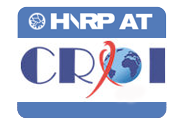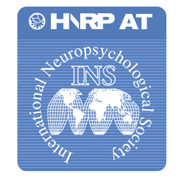Neuromedical Resource Group Overview
The Neuromedical Resource Group (NMRG) serves as a resource to HNRP’s associated studies and collaborating investigators. It provides comprehensive clinical and laboratory evaluations as well as scientific consultation, training, and community education in NeuroAIDS. The HNRP’s collaborating investigators find data coordinated through the NMRG (e.g. antiretroviral (ARV) treatment information, HIV disease staging information) to be essential for their data analyses and publications. By assisting investigators in widely diverging disciplines at all levels of project development, the NMRG encourages the application of multiple scientific perspectives and stimulates interdisciplinary collaboration, coordination and dissemination of results.
Organization
The NMRG is comprised of two interacting subunits. The Clinical Research Support Unit (CRSU) utilizes a new model in which evaluations are performed by a team of staff research associates, nurses, nurse practitioners and physicians. Depending upon the needs of the specific project, the CRSU implements methods for structured neuromedical history-taking, neurological and medical assessment and diagnostic algorithms that facilitate establishing diagnoses of central and peripheral complications of HIV, with special emphasis on neurocognitive diagnoses. The Laboratory, Pharmacology, and Biomarker Unit (LPBU) collects, processes, stores, and makes available for future research, samples of plasma, PBMCs, CSF, and for some studies other fluids and tissues such as urine, CSF cell pellets, and buccal swabs. The LPBU also provides the HNRP with the capacity to measure ARV medication concentrations, immune mediators, and other biomarkers in CSF and plasma, and can facilitate genetics and genomic studies. Together these units perform evaluations on HIV+ subjects and HIV- controls.
Leadership functions of the NMRG are vested in a multidisciplinary team of investigators and staff: Dr. Ronald Ellis (NMRG Director), a neurologist with subspecialty expertise in neurobehavior and HIV/AIDS; and Dr. Scott Letendre (Co-Director), an infectious disease specialist with expertise in neuroAIDS and Hepatitis C infection. Management of the NMRG is provided by Terry Alexander, a clinical research nurse with over ten years of experience in applying neuromedical research methods in local and international settings.
Resources provided
The NMRG coordinates the collection of essential clinical data on human study participants, including neuromedical histories, clinical examinations, and laboratory data. A strength of the NMRG is the standardization and depth of the clinical characterization it provides. The Core Assessment is administered to most studies utilizing neuromedical resources and is designed to keep pace with new knowledge and the evolving objectives of current and future HNRP-associated studies. Core assessments offered include neuromedical history, lumbar puncture, urine toxicology, CD4 count and viral load. In addition to the Core Assessment, neuromedical data is collected as needed to meet the aims of specific studies, i.e.,stroke risk calculator, research biomakers in blood and cerebral spinal fluid
Scientific Consultation
A multidisciplinary group comprised of a neurologist, a neuropsychologist, an internist, a nurse-clinician and a psychiatrist meet regularly to assign neurocognitive diagnostic classifications to research participants. Neuropsychological test data and findings from the neuromedical evaluation (Diagnostic Worksheets) are combined to assign the following diagnoses utilizing research diagnostic guidelines: (1) neurocognitively normal, or (2) asymptomatic neuropsychological impairment (NPI), or (3) mild neurocognitive disorder (MND), or (4) HIV associated dementia.
Trainees
The NMRG offers two types of training: 1) preparation of students in a career focused on neuroAIDS 2) instruction of standardized assessments for clinical and laboratory staff assisting with local, multi-center and international studies.
Training is provided to, pre- and post-doctoral trainees, and fellows who will have the opportunity to gain experience in neuromedical, clinical assessments and pharmacology laboratory methods. Drs. Scott Letendre and Ronald Ellis serve as mentors to trainees.
Cross-project issues
The NMRG holds a weekly meeting to discuss progress of ongoing and upcoming projects. This meeting is attended by Drs. Ronald Ellis and Scott Letendre, NMRG manager Terry Alexander, physicians, nurse practitioners, research associates, and laboratory personnel. Attendees are also involved in an interactive inservice presentation to discuss HIV neurologic disorders, participant case presentations, and preliminary study results. Additionally, clinicians and SRAs have regularly scheduled meetings to address specific issues relevant to the success of daily activities within the NMRG.
Neuromedical Resource Group: Technical Details
General approaches/methods
Although it depends upon the specific needs of the study, the core evaluation includes a neurological and general physical examination performed by a clinician (physician, nurse practitioner, nurse) to detect clinical abnormalities at baseline and subsequent visits (if applicable). This examination includes an evaluation of mental status, cranial nerves, motor, sensory, cerebellar function, reflexes and gait. Other evaluations such as gynecological health history questionnaire, anthropomorphic measurements, Unified Parkinson’s Disease Rating Scale, Unified Huntington’s Disease Rating Scale, neuropathy score are performed according to specific study protocols. Training is available through a variety of modalities such as manuals, videotapes, web-based tutorials, seminars, and workshops.
Methods Training
The NMRG provides structured training for physical and neurological exams, lumbar punctures, CRF completion, participant interviews, and study protocol. Training is also provided for processing lab specimens and assays.
Quality Assurance
A weekly Continuing Education In-service program is vital to quality assurance to provide the NMRG with up to date knowledge in areas relevant to research supported by the HNRP. Data is monitored regularly to ensure that data is consistently processed and made available in the database as studies are accrued. CRFs are reviewed for accuracy, logic, and completion prior to submission to data management. Ongoing QA is also focused on certification of laboratory instrumentation, reagents, and analytic test procedures; as well as assessing precision and accuracy of final results.








